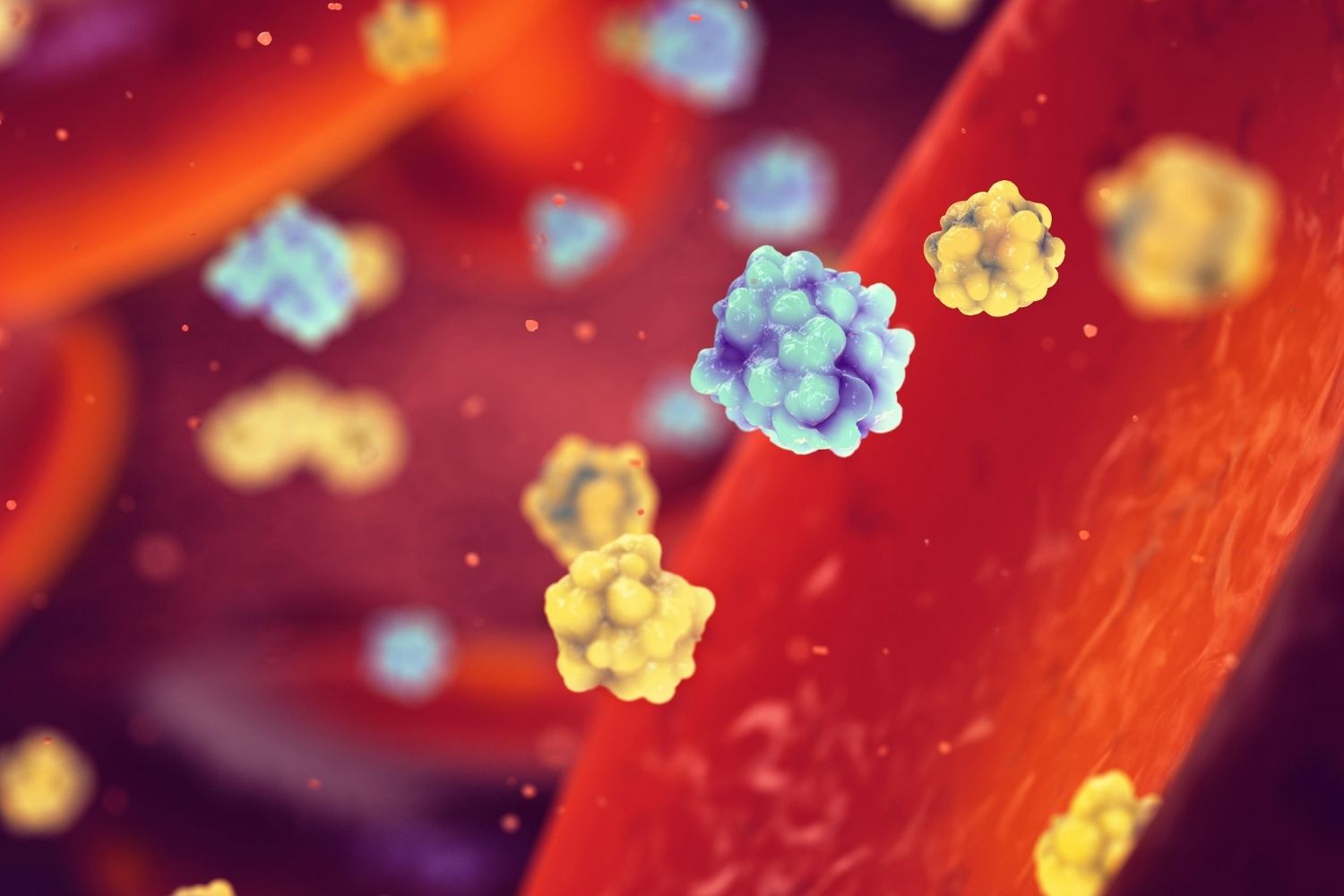
Phosphoenolpyruvate Carboxykinase 2 Deficiency is a rare genetic disorder that affects the body's ability to produce glucose. This enzyme, often abbreviated as PEPCK2, plays a crucial role in gluconeogenesis, the process by which the liver generates glucose from non-carbohydrate sources. Without sufficient PEPCK2, individuals may experience symptoms like hypoglycemia, muscle weakness, and developmental delays. Understanding this condition can help in managing its effects and improving quality of life. In this post, we'll explore 25 intriguing facts about PEPCK2 deficiency, shedding light on its causes, symptoms, and potential treatments. Get ready to dive into the world of metabolic pathways and genetic mutations!
Key Takeaways:
- Phosphoenolpyruvate Carboxykinase 2 (PEPCK2) deficiency is a rare genetic disorder that affects glucose production, leading to symptoms like hypoglycemia and lactic acidosis, especially in infants.
- Early diagnosis and proper management are crucial for patients with PEPCK2 deficiency. Treatment involves special diets, medications, and regular monitoring to maintain normal blood sugar levels and prevent complications.
What is Phosphoenolpyruvate Carboxykinase 2 Deficiency?
Phosphoenolpyruvate Carboxykinase 2 (PEPCK2) deficiency is a rare metabolic disorder. It affects the body's ability to produce glucose from non-carbohydrate sources. This condition can lead to various health issues, especially in infants and young children.
-
PEPCK2 deficiency is a genetic disorder. It is inherited in an autosomal recessive manner, meaning both parents must carry the defective gene.
-
The disorder affects gluconeogenesis. Gluconeogenesis is the process of producing glucose from non-carbohydrate sources like amino acids and fats.
-
PEPCK2 is an enzyme. This enzyme plays a crucial role in the metabolic pathway that converts oxaloacetate into phosphoenolpyruvate.
-
Symptoms often appear in infancy. These can include hypoglycemia, lactic acidosis, and failure to thrive.
-
Hypoglycemia is a common symptom. Low blood sugar levels can cause seizures, irritability, and lethargy.
How is PEPCK2 Deficiency Diagnosed?
Diagnosing PEPCK2 deficiency involves several steps. Medical professionals use a combination of clinical evaluation, laboratory tests, and genetic testing.
-
Blood tests are essential. They can reveal low blood sugar levels and high levels of lactic acid.
-
Genetic testing confirms the diagnosis. Identifying mutations in the PCK2 gene can provide a definitive diagnosis.
-
Metabolic tests are also used. These tests can assess the body's ability to produce glucose from non-carbohydrate sources.
-
Family history is important. Knowing if other family members have the condition can help in diagnosing.
-
Newborn screening may detect it early. Some regions include PEPCK2 deficiency in their newborn screening programs.
Treatment Options for PEPCK2 Deficiency
Managing PEPCK2 deficiency requires a multidisciplinary approach. Treatment focuses on maintaining normal blood sugar levels and preventing complications.
-
Frequent feeding is crucial. Infants may need to eat every few hours to prevent hypoglycemia.
-
Special diets can help. High-protein, low-carbohydrate diets may be recommended.
-
Medications may be necessary. Some patients require medications to manage symptoms like seizures.
-
Monitoring blood sugar levels is vital. Regular checks can help prevent hypoglycemic episodes.
-
Emergency care plans are important. Families should have a plan in place for managing sudden drops in blood sugar.
Long-term Outlook for Patients
Living with PEPCK2 deficiency can be challenging. However, with proper management, many patients can lead relatively normal lives.
-
Early diagnosis improves outcomes. The sooner the condition is identified, the better the chances of managing it effectively.
-
Regular follow-ups are needed. Ongoing medical care is essential to monitor and adjust treatment plans.
-
Growth and development can be affected. Some children may experience delays in growth and development.
-
Liver function should be monitored. The liver plays a key role in glucose production, so its function must be checked regularly.
-
Support groups can be beneficial. Connecting with other families facing similar challenges can provide emotional support.
Research and Future Directions
Research on PEPCK2 deficiency is ongoing. Scientists are exploring new treatments and ways to improve the quality of life for patients.
-
Gene therapy holds promise. Researchers are investigating the potential of gene therapy to correct the underlying genetic defect.
-
New medications are being developed. These aim to better manage symptoms and improve metabolic control.
-
Clinical trials are essential. Participating in clinical trials can help advance understanding and treatment of the condition.
-
Patient registries are valuable. Collecting data on patients can help identify patterns and improve care.
-
Awareness is increasing. Greater awareness among healthcare providers and the public can lead to earlier diagnosis and better outcomes.
Final Thoughts on Phosphoenolpyruvate Carboxykinase 2 Deficiency
Phosphoenolpyruvate Carboxykinase 2 Deficiency, though rare, significantly impacts metabolism. This enzyme, crucial for gluconeogenesis, helps convert non-carbohydrates into glucose. Without it, blood sugar levels can drop dangerously low, leading to hypoglycemia. Symptoms often include fatigue, irritability, and seizures. Early diagnosis and treatment are vital. Genetic testing can confirm the deficiency, and dietary management, along with medical supervision, can help manage symptoms. Understanding this condition better can lead to improved treatments and support for those affected. Stay informed and consult healthcare professionals if you suspect any metabolic issues. Knowledge is power when dealing with rare metabolic disorders.
Frequently Asked Questions
Was this page helpful?
Our commitment to delivering trustworthy and engaging content is at the heart of what we do. Each fact on our site is contributed by real users like you, bringing a wealth of diverse insights and information. To ensure the highest standards of accuracy and reliability, our dedicated editors meticulously review each submission. This process guarantees that the facts we share are not only fascinating but also credible. Trust in our commitment to quality and authenticity as you explore and learn with us.
